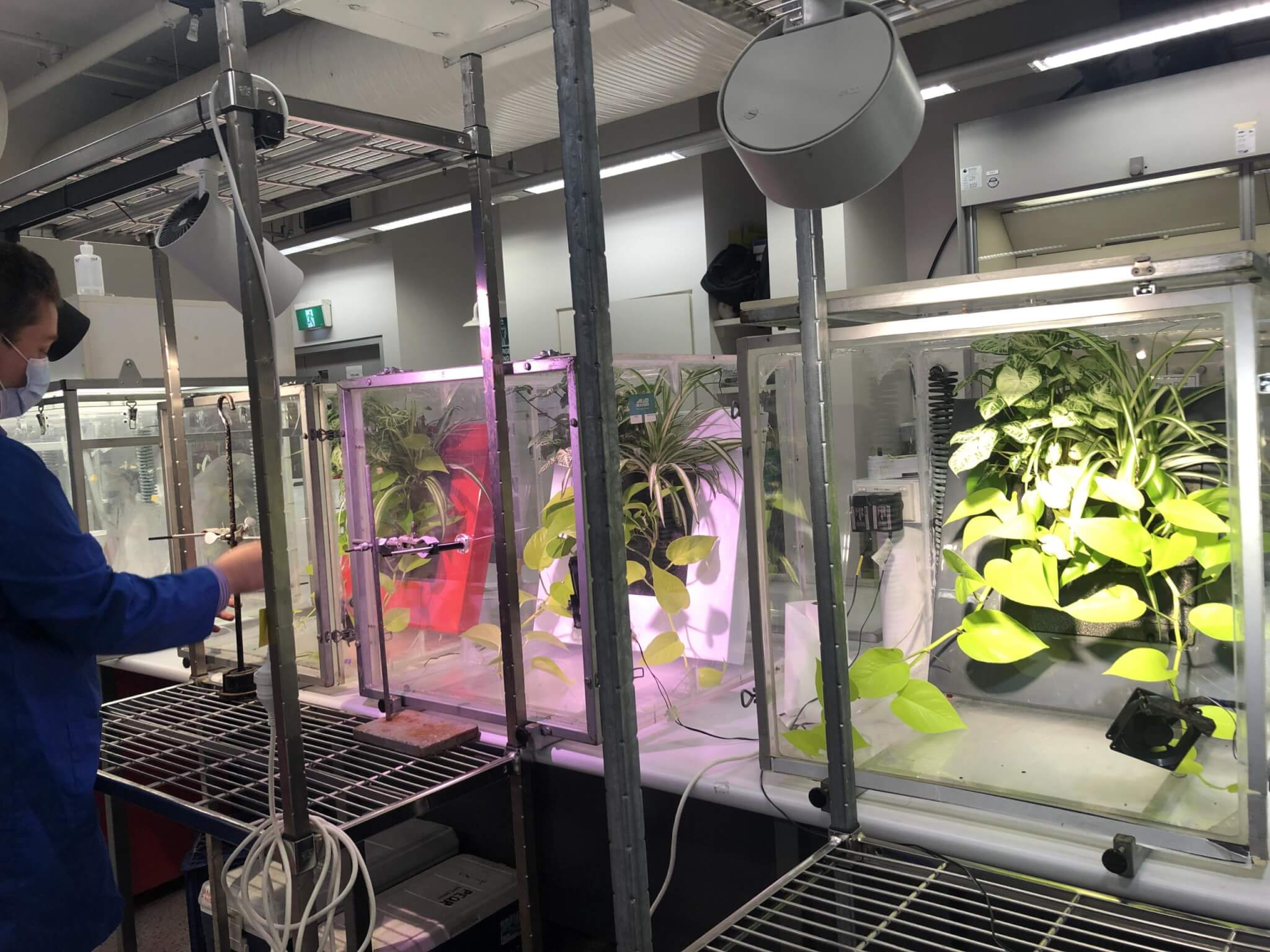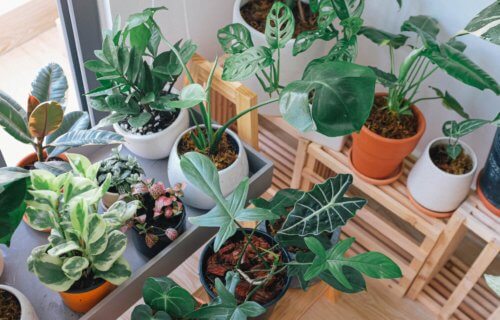ULTIMO, Australia — Plants not only brighten up a dreary room, they may also save you from cancer! While many people may know plants produce oxygen, researchers say they can also soak up harmful chemicals in the air. University of Technology Sydney (UTS) researchers, in collaboration with plantscaping solutions company Ambius, have found that plants can remove almost all cancer-causing fumes from a room.
“We know that indoor air quality is often significantly more polluted than outdoor air, which in turn impacts mental and physical health. But the great news is this study has shown that something as simple as having plants indoors can make a huge difference,” says Ambius General Manager Johan Hodgson.
According to the World Health Organization, poor indoor air quality is responsible for 6.7 million premature deaths around the world. Most people spend 90 percent of their time inside of a building, whether that’s at home, school, or work. Because of this, it’s really important to have effective strategies in place to help mitigate the harmful effects of air pollution.
Plants can clean up a room in 8 hours
The team found that the Ambius small green wall, which has a mix of indoor plants, was highly effective at removing carcinogenic air pollutants — removing 97 percent of the most toxic compounds from the surrounding air within eight hours. Previous studies have also shown this, but this one is the first experiments to show that plants can remove petrol (gasoline) fumes, which are one of the largest sources of toxic compounds in buildings around the world.
“This is the first time plants have been tested for their ability to remove petrol-related compounds, and the results are astounding,” says Associate Professor Fraser Torpy, the study leader and a UTS bioremediation researcher, in a university release.

“Not only can plants remove the majority of pollutants from the air in a matter of hours, they remove the most harmful petrol-related pollutants from the air most efficiently, for example, known carcinogen benzene is digested at a faster rate than less harmful substances, like alcohols,” Torpy continues.
“We also found that the more concentrated the toxins in the air, the faster and more effective the plants became at removing the toxins, showing that plants adapt to the conditions they’re growing in.”
Their findings were able to validate the positive feedback they received after installing plants in hundreds of office buildings across the country.
“At Ambius, we see over and over again the effects plants have in improving health, wellbeing, productivity and office attendance for the thousands of businesses we work with. This new research proves that plants should not just be seen as ‘nice to have’, but rather a crucial part of every workplace wellness plan,” Hodgson concludes.
“The bottom line is that the best, most cost effective and most sustainable way to combat harmful indoor air contaminants in your workplace and home is to introduce plants.”
You might also be interested in:
- Best House Plants: Top 5 Indoor Planters Most Recommended By Experts
- Tomato plants ‘scream’ when you cut their stems! Now you can hear what it sounds like
- Best Garden Plants: Top 5 Backyard Blooms Most Recommended By Experts


Gee, could it have to do with the fact that people who can afford healthier food and healthier places to live also are more likely to have house plants?
It’s not the plants themselves, but the LIFESTYLE of people who also have houseplants.
Which plant is best?
> Which plant is best?
Cannabis.
I smoke my houseplants, does that count?
Of course, they do there work while they’re growing. Roll’em up and enjoy good health
I’m appalled that you don’t list which plants are most effective in removing the harmful toxins!! Why even write the article if you’re not going to list the best solution ?!
Say what????? How do you measure that if only testing the plant in a small enclosed glass space????
No data provided in measuring the plants cleaning the air in a 3000 or larger square foot space. The science has said it is not quantifiable. I wrote on the form on the ‘university release’ link to get the ‘report’ (why isn’t it just publicly online?) and all you get is a brochure with percentages with titles to supposed studies – but again, the studies are in a lab environment. This is only marketing because Ambius is a commercial company SELLING these wall plant systems. Only to make $ with getting a research co to say what Ambius wants them to say.
Other science refuting this: LiveScience article: https://www.livescience.com/do-indoor-plants-purify-air
Even the Time article’s had a professor, Luz Claudio saying the same thing I did: https://time.com/5105027/indoor-plants-air-quality/
You cannot say plants can prevent cancer in an open indoor space unless you measure the air for 5 to 10 years AND see how many people have health issues or not.
Just an fyi, spider plants and lilies are known for their air cleaning properties BUT lilies are toxic to cats if they chew on them. But you cannot keep all your home or office spaces air clean even with a wall of plants – potential for mold growth in the wall, behind the pots.
I speak more about it here: https://rumble.com/v2ttts4-do-indoor-plants-purify-air-australian-co-says-yes-but-no-data-shown..html